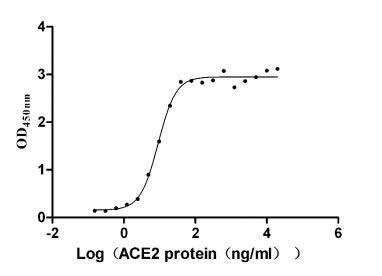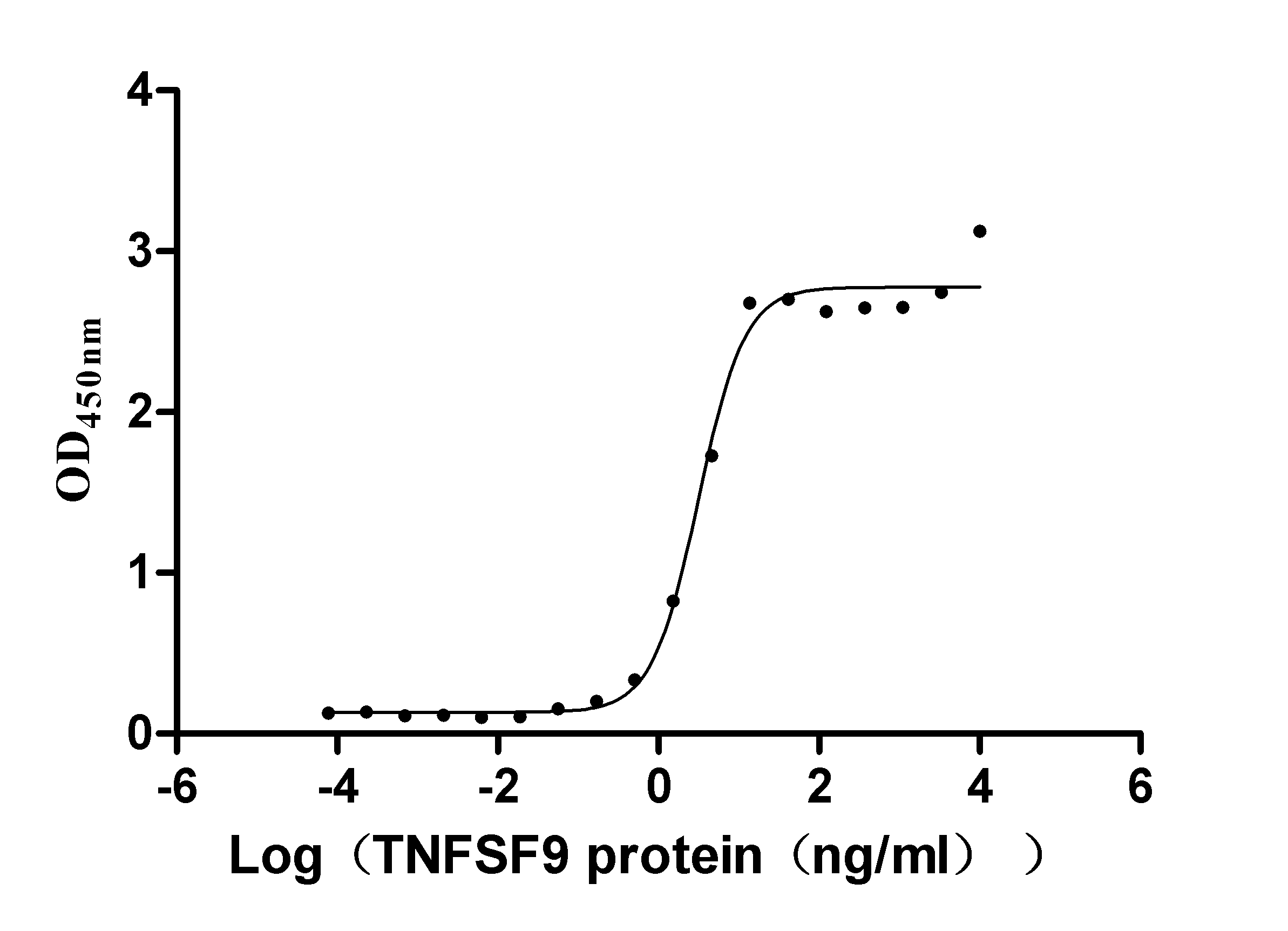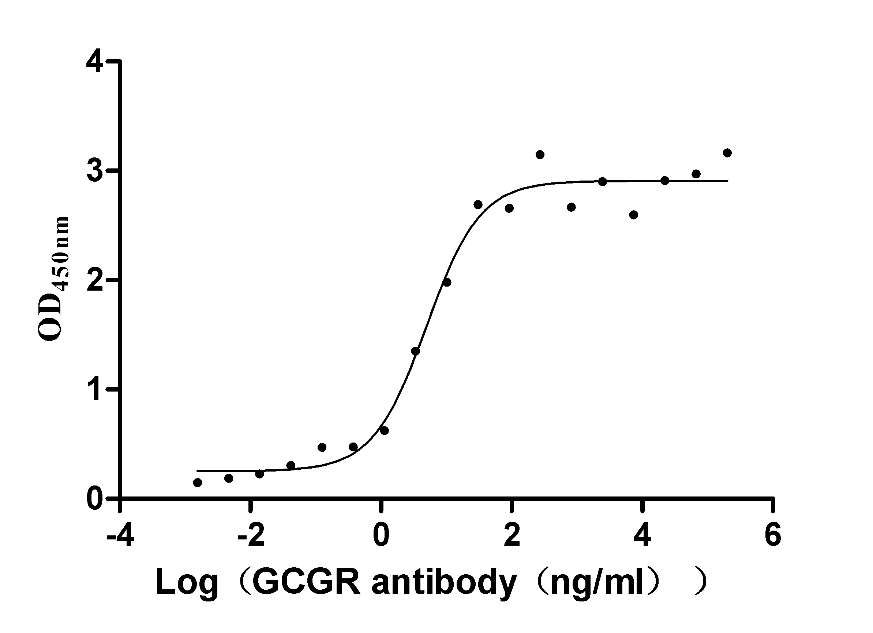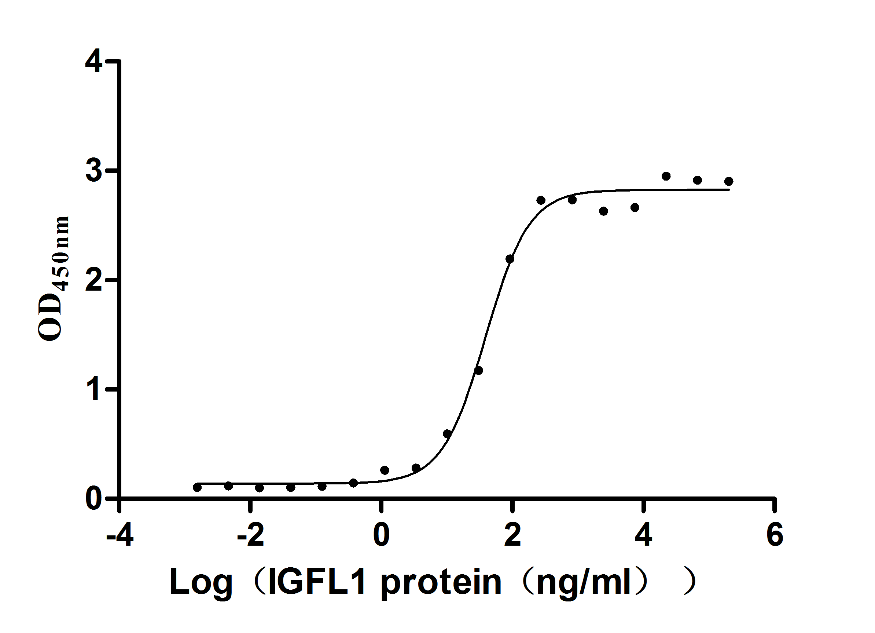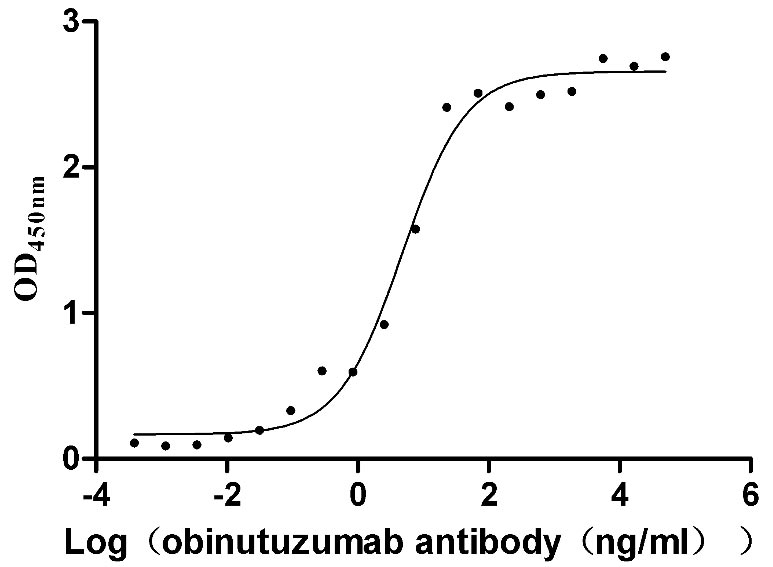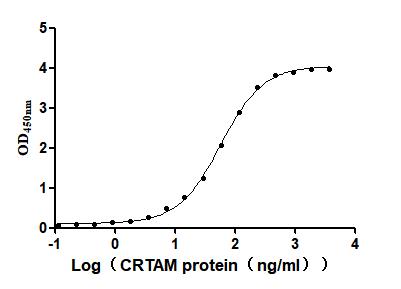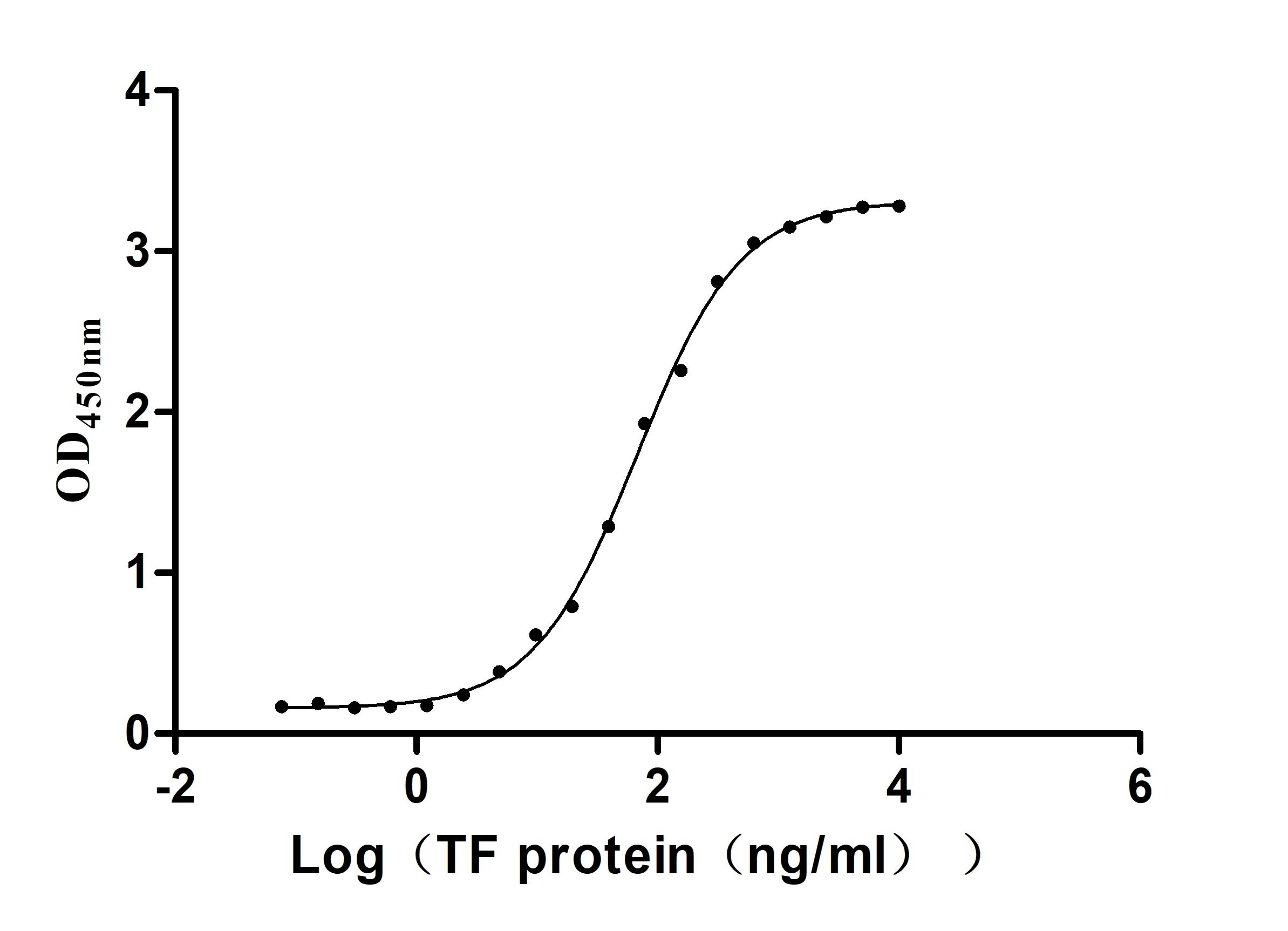Recombinant Salmonella typhimurium Inositol phosphate phosphatase sopB (sopB), partial
-
中文名稱:鼠傷寒沙門(mén)菌sopB重組蛋白
-
貨號(hào):CSB-YP523230SXB
-
規(guī)格:
-
來(lái)源:Yeast
-
其他:
-
中文名稱:鼠傷寒沙門(mén)菌sopB重組蛋白
-
貨號(hào):CSB-EP523230SXB
-
規(guī)格:
-
來(lái)源:E.coli
-
其他:
-
中文名稱:鼠傷寒沙門(mén)菌sopB重組蛋白
-
貨號(hào):CSB-EP523230SXB-B
-
規(guī)格:
-
來(lái)源:E.coli
-
共軛:Avi-tag Biotinylated
E. coli biotin ligase (BirA) is highly specific in covalently attaching biotin to the 15 amino acid AviTag peptide. This recombinant protein was biotinylated in vivo by AviTag-BirA technology, which method is BriA catalyzes amide linkage between the biotin and the specific lysine of the AviTag.
-
其他:
-
中文名稱:鼠傷寒沙門(mén)菌sopB重組蛋白
-
貨號(hào):CSB-BP523230SXB
-
規(guī)格:
-
來(lái)源:Baculovirus
-
其他:
-
中文名稱:鼠傷寒沙門(mén)菌sopB重組蛋白
-
貨號(hào):CSB-MP523230SXB
-
規(guī)格:
-
來(lái)源:Mammalian cell
-
其他:
產(chǎn)品詳情
-
純度:>85% (SDS-PAGE)
-
基因名:sopB
-
Uniprot No.:
-
別名:sopB; sigD; STM1091; Inositol phosphate phosphatase SopB; EC 3.1.3.-; Effector protein SopB
-
種屬:Salmonella typhimurium (strain LT2 / SGSC1412 / ATCC 700720)
-
蛋白長(zhǎng)度:Partial
-
蛋白標(biāo)簽:Tag?type?will?be?determined?during?the?manufacturing?process.
The tag type will be determined during production process. If you have specified tag type, please tell us and we will develop the specified tag preferentially. -
產(chǎn)品提供形式:Lyophilized powder
Note: We will preferentially ship the format that we have in stock, however, if you have any special requirement for the format, please remark your requirement when placing the order, we will prepare according to your demand. -
復(fù)溶:We recommend that this vial be briefly centrifuged prior to opening to bring the contents to the bottom. Please reconstitute protein in deionized sterile water to a concentration of 0.1-1.0 mg/mL.We recommend to add 5-50% of glycerol (final concentration) and aliquot for long-term storage at -20℃/-80℃. Our default final concentration of glycerol is 50%. Customers could use it as reference.
-
儲(chǔ)存條件:Store at -20°C/-80°C upon receipt, aliquoting is necessary for mutiple use. Avoid repeated freeze-thaw cycles.
-
保質(zhì)期:The shelf life is related to many factors, storage state, buffer ingredients, storage temperature and the stability of the protein itself.
Generally, the shelf life of liquid form is 6 months at -20°C/-80°C. The shelf life of lyophilized form is 12 months at -20°C/-80°C. -
貨期:Delivery time may differ from different purchasing way or location, please kindly consult your local distributors for specific delivery time.Note: All of our proteins are default shipped with normal blue ice packs, if you request to ship with dry ice, please communicate with us in advance and extra fees will be charged.
-
注意事項(xiàng):Repeated freezing and thawing is not recommended. Store working aliquots at 4°C for up to one week.
-
Datasheet :Please contact us to get it.
靶點(diǎn)詳情
-
功能:Converts phosphatidylinositol 3,4,5-trisphosphate (PtdIns 3,4,5-P3) to PtdIns 3-P and prevents the transition of PtdIns 3-P to PtdIns 3,5-P2. It is one of the known effectors injected by Salmonella into the host cell and is required for invasion and for an efficient generation and maintenance of Salmonella-containing vacuole (SVC). Alteration of the phosphoinositide composition of the plasma membrane causes membrane ruffling and actin cytoskeleton rearrangements. The persistence of PtdIns 3-P diverts the SCV from the endocytic pathway resulting in enlarged vesicles, which are essential to create a favorable environment where Salmonella can replicate and avoid immune defenses of the host cell.
-
基因功能參考文獻(xiàn):
- These findings show that SopB suppresses host cell apoptosis by binding to TRAF6 and preventing mitochondrial reactive oxygen species generation. PMID: 27473656
- This work reveals the unique ability of bacterial effector protein SopB to utilize both its 4- and 5-phosphatase activities to regulate phosphoinositide dynamics to promote bacterial entry PMID: 26537021
- SopB secretion was also considerably impaired in the absence of dam. PMID: 24947562
- The structural organization of the N-terminus domain of SopB, a virulence factor of Salmonella, depends on the nature of its protein partners PMID: 24075929
- Data found that SopB-dependent membrane translocation and phosphorylation of Akt are insensitive to the PI3K inhibitor wortmannin. PMID: 21779406
- Killing of Candida albicans filaments by Salmonella enterica serovar Typhimurium is mediated by sopB effectors, parts of a type III secretion system PMID: 21498643
- SopB may play a role in protecting mice from Salmonella colonization through activation of Akt2 PMID: 21555401
- SopB activity results in dissociation of a number of host-cell endocytic trafficking proteins from this compartment and inhibits Salmonella-containing vacuole-lysosome fusion. PMID: 20542249
- These data show that ubiquitination of SopB is not related to its intracellular stability but rather regulates its enzymatic activity at the plasma membrane and intracellular localization. PMID: 19614667
- essential for the establishment of Salmonella's intracellular replicative niche; responsible for maintaining high levels of phosphatidylinositol-three-phosphate in the membrane of the bacteria-containing vacuoles PMID: 15205533
- the N-terminal non-catalytic region exerts a specific effect on the actin cytoskeleton both in yeast and in human cell lines PMID: 16153243
- study demonstrates that SopB, SopE, SopE2 and SipA are the Salmonella pathogenicity island-1 secreted effectors responsible for disruption of tight junction structure and function PMID: 16869830
- Together, these results indicate that SPI-1 effector proteins SipA, SopA, SopB, SopD and SopE2 may participate in the late stages of Salmonella infection in mice. PMID: 17379731
- When expressed by microinjecting cDNA into epithelial cells forming confluent monolayers, wild-type SigD induced striking morphological and functional changes that were not mimicked by a phosphatase-deficient SigD mutant PMID: 17389247
- Study reports that the phosphoinositide phosphatase SopB, a Salmonella Typhimurium type III secreted effector protein, diversifies its function by localizing to different cellular compartments in a ubiquitin-dependent manner. PMID: 19379694
- S. Typhimurium stimulates intestinal inflammationby delivering through its type III secretion system the bacterial effector proteins SopE, SopE2, and SopB PMID: 19662166
- Prevents apoptosis in infected epithelial cells by activating the pro-survival kinase Akt. PMID: 15642738
顯示更多
收起更多
-
亞細(xì)胞定位:Secreted.
-
蛋白家族:Phosphatase IpgD/SopB family
-
數(shù)據(jù)庫(kù)鏈接:
KEGG: stm:STM1091
STRING: 99287.STM1091
Most popular with customers
-
Recombinant Severe acute respiratory syndrome coronavirus Spike glycoprotein (S), partial (Active)
Express system: Mammalian cell
Species: Human SARS coronavirus (SARS-CoV) (Severe acute respiratory syndrome coronavirus)
-
Recombinant Human Tumor necrosis factor ligand superfamily member 9 (TNFSF9), partial (Active)
Express system: Mammalian cell
Species: Homo sapiens (Human)
-
Recombinant Human Glucagon receptor (GCGR), partial (Active)
Express system: Mammalian cell
Species: Homo sapiens (Human)
-
Recombinant Human IGF-like family receptor 1 (IGFLR1), partial (Active)
Express system: Mammalian cell
Species: Homo sapiens (Human)
-
Recombinant Human B-lymphocyte antigen CD20 (MS4A1)-VLPs (Active)
Express system: Mammalian cell
Species: Homo sapiens (Human)
-
Recombinant Mouse Cytotoxic and regulatory T-cell molecule (Crtam), partial (Active)
Express system: Mammalian cell
Species: Mus musculus (Mouse)
-
Recombinant Human Serotransferrin(TF) (Active)
Express system: Mammalian cell
Species: Homo sapiens (Human)


